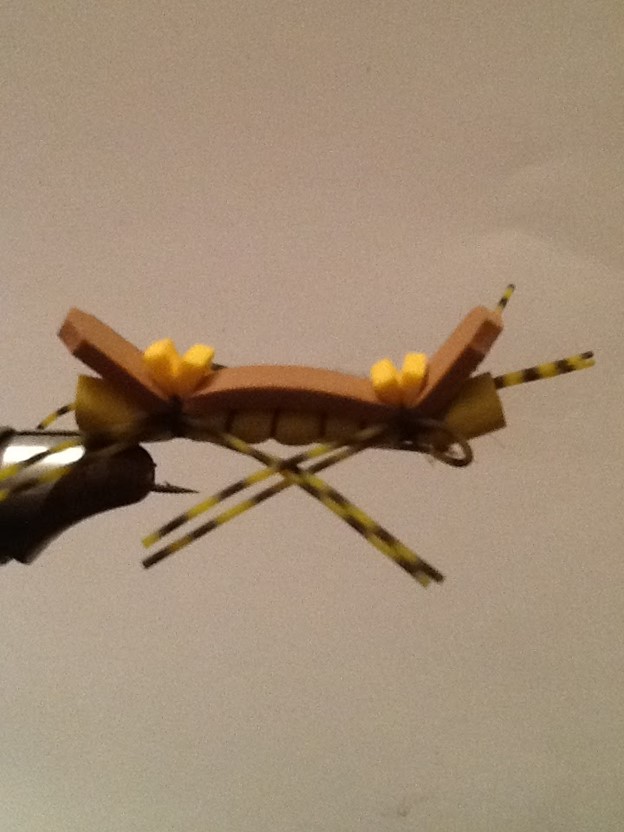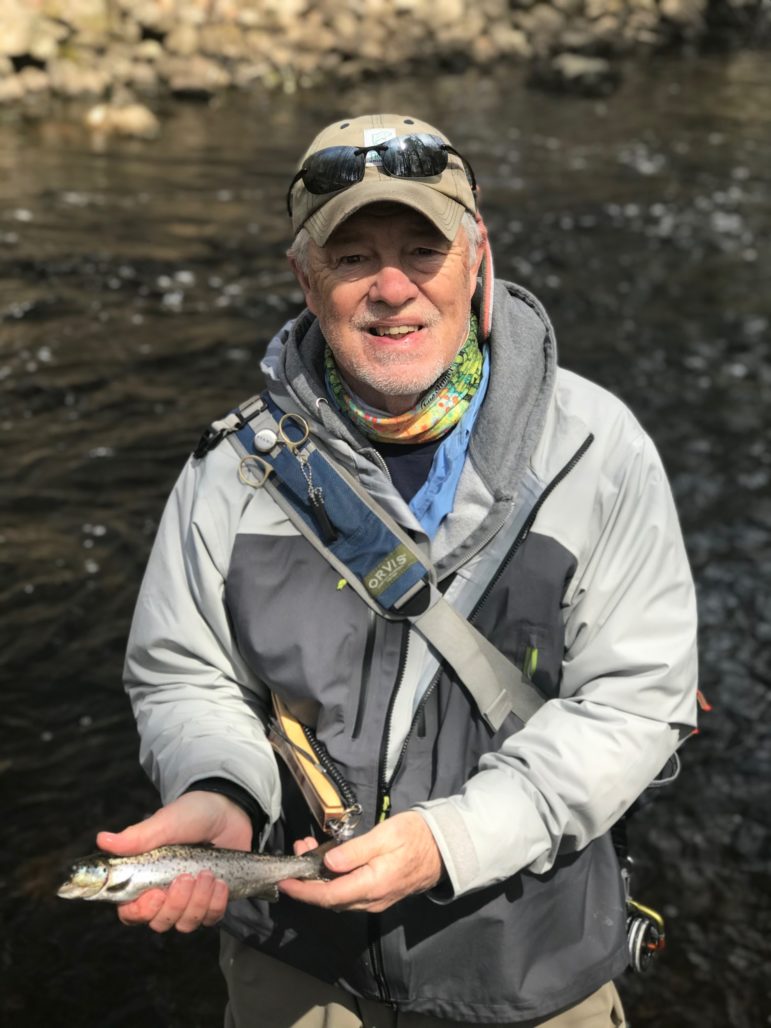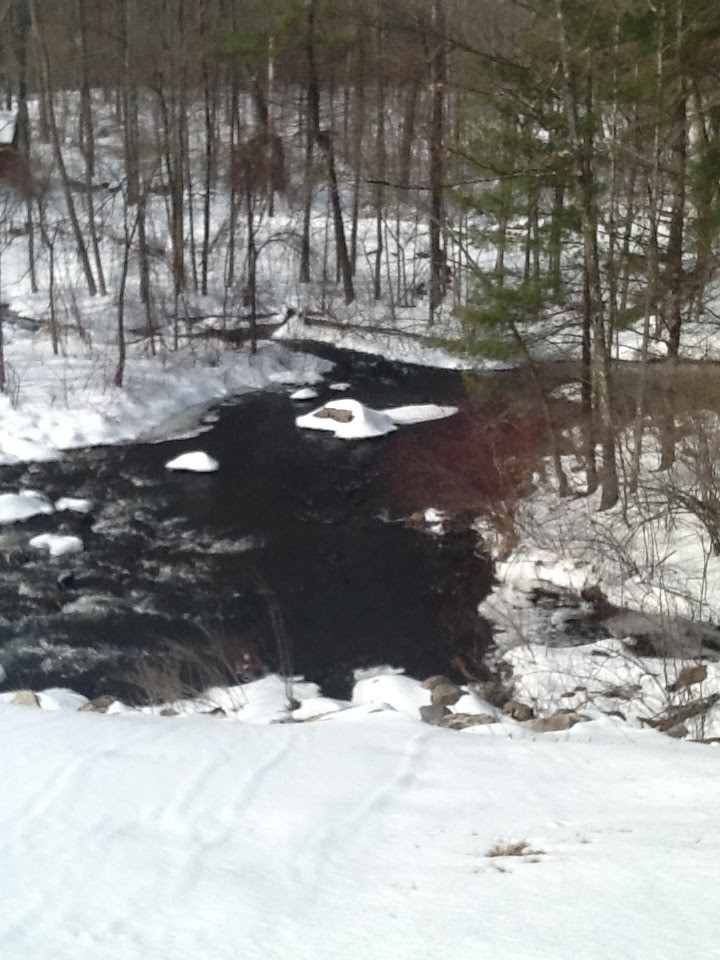WRITING ON THE FLY
By GEORGE LISET

The day is overcast and cannot make its mind up if it wants to rain or snow or do both. A day like this could become a shoveling nightmare. I’m sitting by the fireplace with a cup of coffee and thinking this would be a great day to tie flies. This time of year, when the ice covers the river making wading treacherous, is when most fly fishers hit their bench to tie flies.
Fly tying is an art, plain and simple: However, fly tying can be as easy or as complicated as you want to make it, it just depends on your purpose. Some fly fishers tie for the practical purpose of using them. Others tie for the art of it. These fly tyers have the ability to take something practical and turn it into a work of art. Although these are the extremes, there are many tyers that do both.

New England has a rich history of fly tying, and two of the most prominent names in fly tying belong to women. Cornelia Thurza “Fly Rod” Crosby was credited as being one of the first Maine Guides as well as fly tyer. Mary Orvis Marbury, the author of “Favorite Flies and Their Histories”, was the daughter of Charles F. Orvis , the founder of the Orvis Fly fishing Co. out of Manchester, Vermont.
I’ll admit right up front that I do not do a lot of tying. One reason is that I don’t have a designated area dedicated to fly tying. Setting up and breaking down takes time and cuts into tying time. I know it is not a great excuse, but it is the way that I am wired. The other reason is that I am color blind. If you ever saw my outfits on the river you would understand. Trying to figure out the different shades of certain colors can be problematic, but I can tie a mean black Wooly Bugger.
Another tying consideration is the trout. There is always a debate about how smart the trout are or are not. I believe the consensus is that the more fishing pressure a trout experiences, the more selective they are. In areas where trout don’t see a lot of pressure, they will rise to almost anything. The fish that sees more fishing pressure will be more selective as to the size and color of the fly being presented. Again, fly tying can be as simple or as complicated as you want to make it.
My friend Charlie ties flies to fish. The first piece of advice he gave me when I was learning to tie flies was that the flies don’t have to be perfect. Charlie told me that by the time a real insect has been in the water awhile and has gone down the river a bit it is all beat up. That made a lot of sense and took the pressure off having to tie the perfect fly.
Then there is the artist. Scott Biron who is a master fly tyer and will be a featured tyer at the New England Fly Fishing Show in Marlborough, MA January 20-22, makes beautiful flies. I have a number of his flies on display.
It is quite a process to become a master tyer. It takes hours of study under another master tyer. Scott has done a lot of work with New Hampshire Fish and Game and does a number of seminars for them. You can check out the New Hampshire Fish and Game website for more information.
If you don’t currently tie flies, but would like to, I would recommend going to your local fly fishing shop and asking them to set you up with the materials that you need to get started. YouTube is a great vehicle for fly tying tutorials. I can spend hours watching these videos. I may not be a great tyer, but I can appreciate someone who is. There are also fly fishing clubs that have fly tying sessions. Trout Unlimited Chapters are also a great resource. Not only will you gain the benefit of learning the little nuances of fly tying, you’ll also learn how to fish the fly, and if you are lucky, the secret spots of where to fish them.
George Liset of Dover is an award-winning outdoor writer and avid fly fisherman who shares insights of his time on the water exploring New Hampshire streams and rivers as well of those around New England. George is a graduate of Wheaton College, Illinois, and the University of New Hampshire. His column Writing on the Fly has been honored by the New England Press Association and the New Hampshire Press Association.






